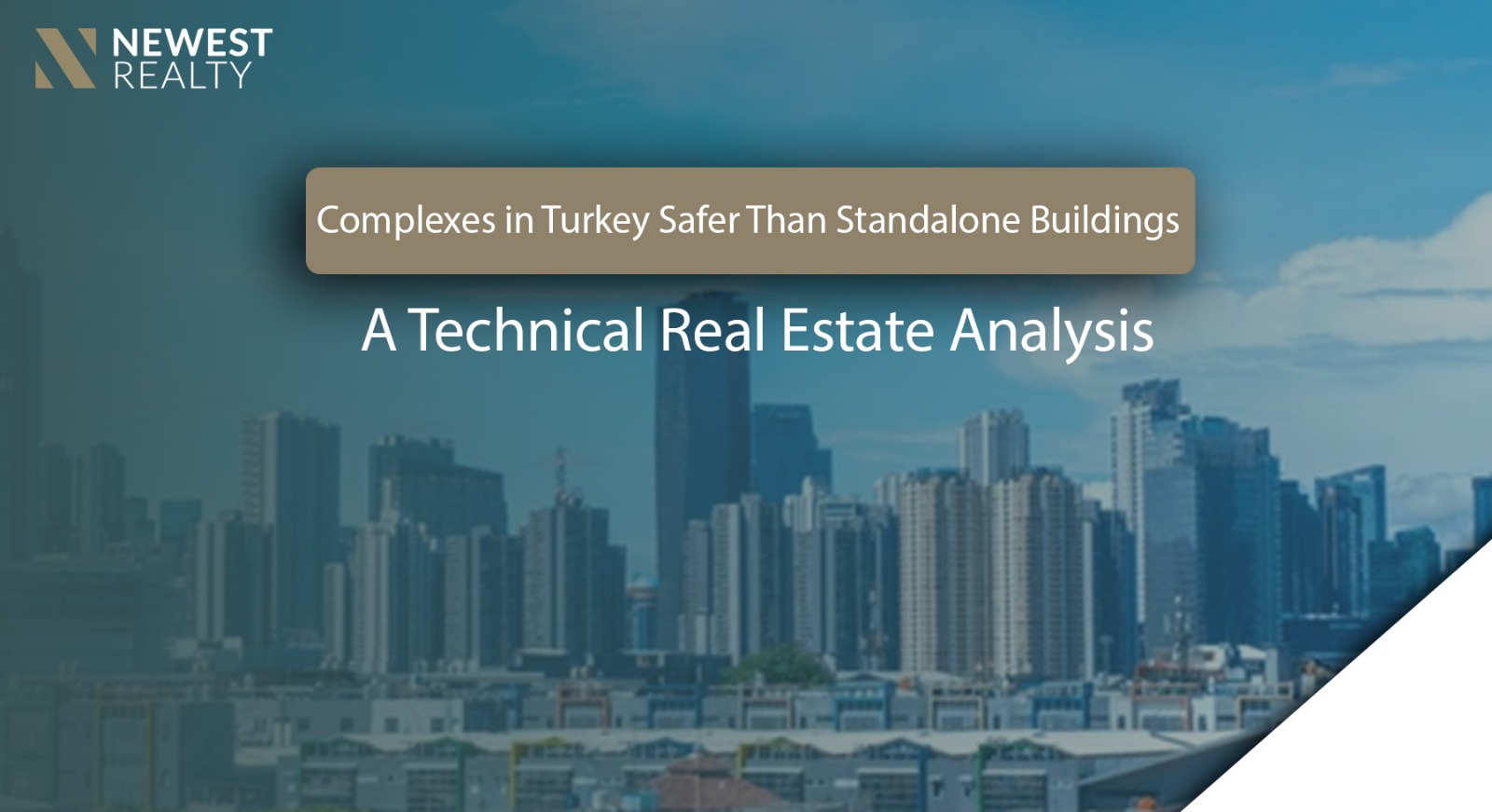Are Residential Complexes in Turkey Safer Than Standalone Buildings Against Earthquakes? A Technical Real Estate Analysis
Following the devastating earthquake that struck southern Turkey and northern Syria, a critical question emerged for anyone considering buying an apartment in Istanbul or investing in Turkish real estate:
Is the property I want to buy earthquake-resistant? And is it better to invest in a residential complex or a standalone building?
In this article, we explore the technical and structural differences between residential complexes and standalone buildings in Turkey, highlighting their earthquake resistance based on current construction standards.
What Makes Residential Complexes Safer Against Earthquakes?
1. Large Land Area and Urban Planning:
Residential complexes are typically built on plots exceeding 25,000 m². However, not all the land is used for construction. A significant portion is allocated for gardens, pools, and services, allowing for wider foundational structures that improve earthquake resistance.
2. Deep Excavation and Soil Reinforcement:
Excavation in complexes is deeper to accommodate underground parking and to strengthen the soil using modern techniques, bringing the foundation closer to bedrock layers, which enhances the building’s ability to withstand seismic activity.
3. Advanced Seismic Technologies (Seismic Isolators):
Large complexes, especially those with towers over 30 stories, are often equipped with cutting-edge seismic separation systems, inspired by Japanese or Chinese engineering, allowing buildings to absorb shocks without collapsing.
4. Strict Government Oversight for Large-Scale Housing Projects:
Municipalities in Turkey impose rigorous construction standards on residential complexes, unlike many standalone buildings that might be built with minimal supervision. This oversight significantly increases safety levels in residential compounds.
Are Standalone Buildings Unsafe?
Not necessarily. However, they tend to be less earthquake-resistant due to:
- Smaller land plots that don’t allow for wide structural bases.
- Lack of seismic insulation technology in many of them.
- Potential construction flaws due to unqualified or unregulated contractors.
Reputable Government and Private Complexes: The Smart Choice
During the recent earthquake, statistics showed that thousands of housing units in government-backed projects—such as those by TOKİ (Turkey’s Housing Development Administration)—remained intact despite the quake’s magnitude.
This underscores the importance of quality construction and oversight.
For anyone looking to buy property in Turkey or purchase an apartment in Istanbul, it's highly recommended to choose:
- Government projects or those partially supervised by the state.
- Large, reputable real estate development companies with a clean track record.
- Projects that comply with modern seismic safety standards.
Conclusion: Quality Over Price
If you’re considering real estate investment in Istanbul or searching for apartments for sale on the European or Asian side, don’t let price be your only criterion.
A cheaper property may be built with substandard materials and methods, putting your safety—and that of your loved ones—at risk.


